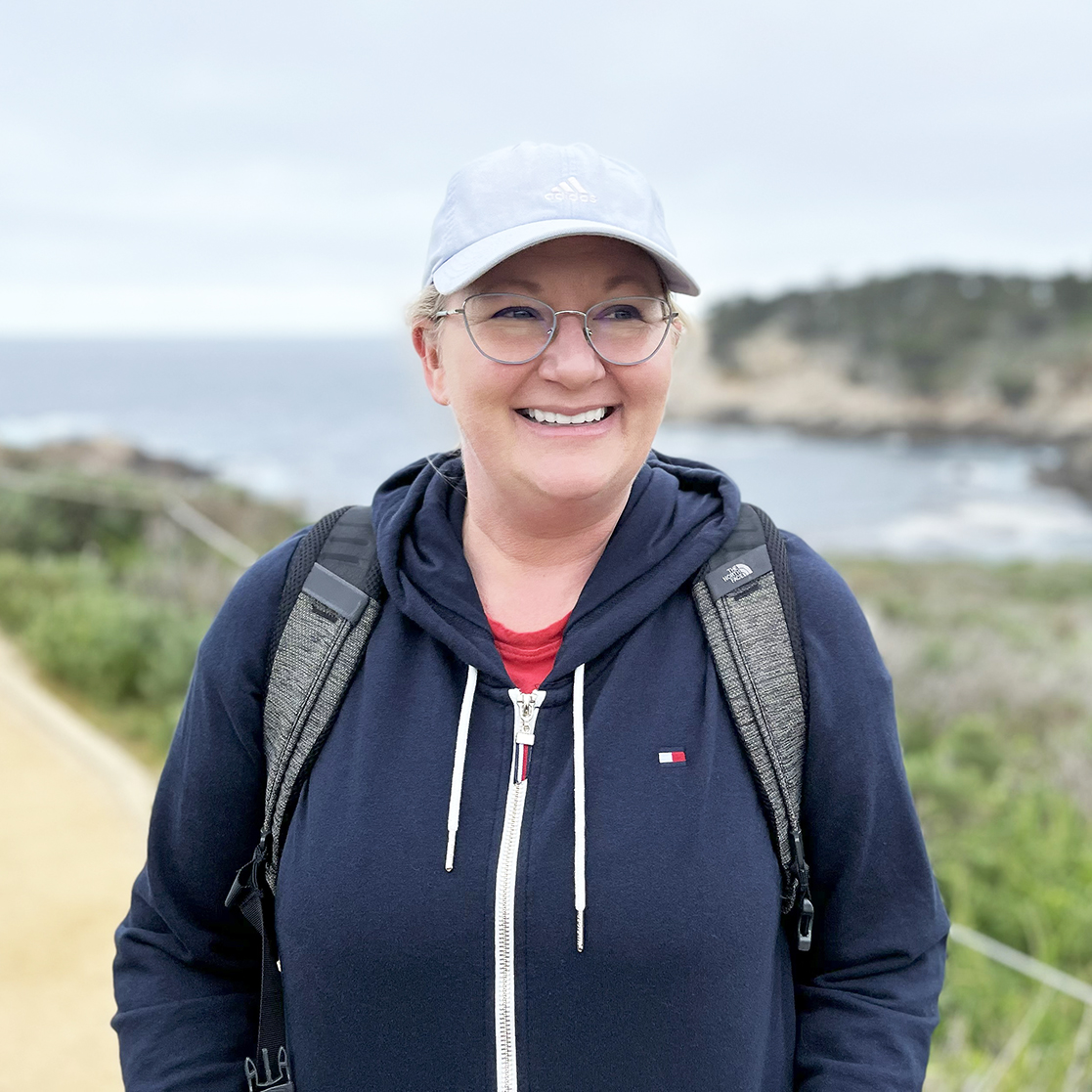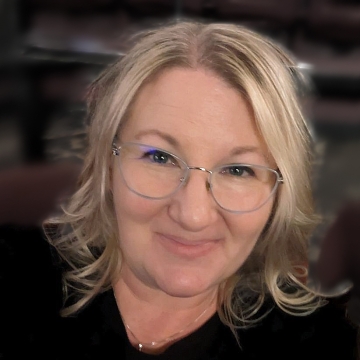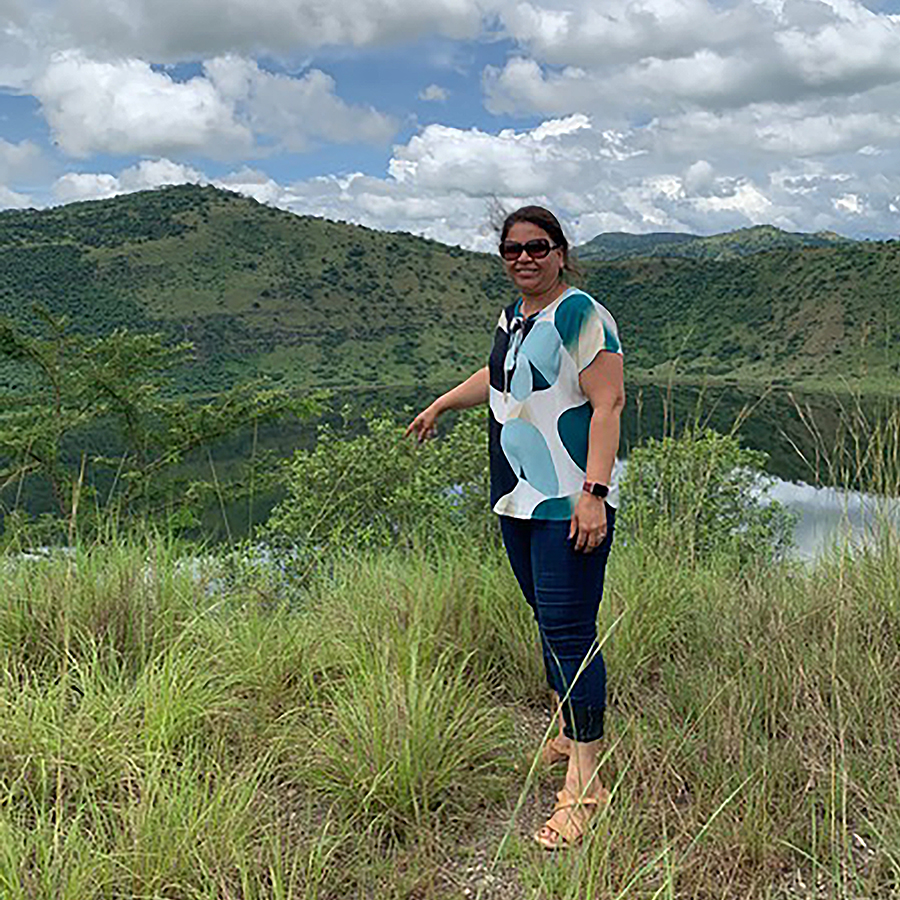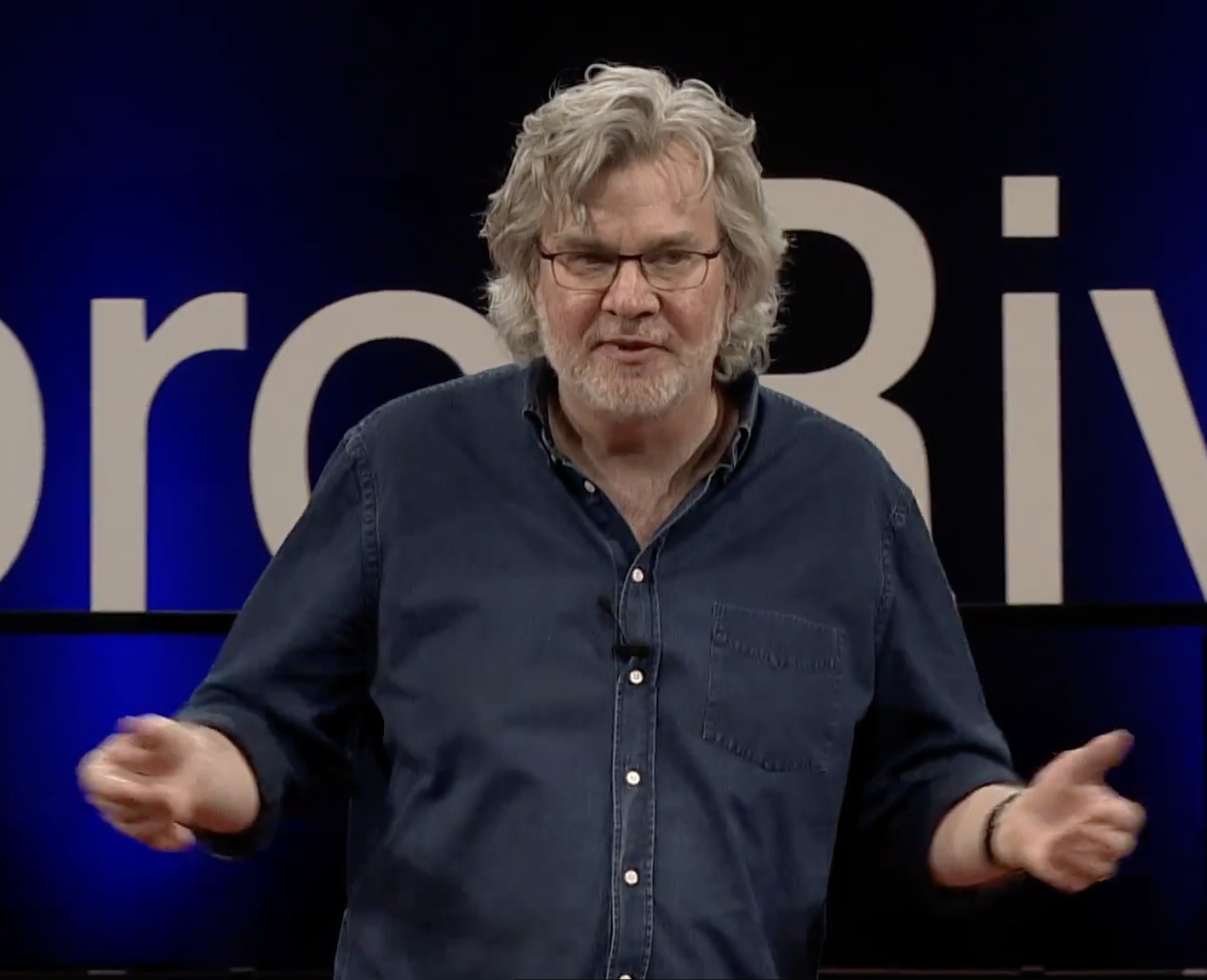How a microbiologist reinvented her career through UChicago’s certificate programs and built a medical writing and consulting practice.
Nicole Cotroneo spent nearly three decades advancing antimicrobial therapies as she rose from bench researcher to director in clinical microbiology. But in 2022, after a layoff amid declining investment in her field, she had to accept that her microbiology expertise was now limiting her options. As colleagues with different scientific backgrounds moved into areas like oncology and immunology, her path forward seemed blocked.
“I knew I needed to pivot and reframe my skills for other therapeutic areas,” she recalls. As she considered her options, she began to see medical writing as a path that offered the impact she was hoping to make. And yet despite authoring countless scientific reports and regulatory filings, she still felt she had much to learn. “As researchers, we write constantly, but no one teaches us the ethics of writing, or how to choose the right chart, or where to find answers on grammar.”
A mentor’s suggestion led her to the University of Chicago’s Medical Writing and Editing (MWE) certificate. The program opened her eyes to the variety of options within the field. Its comprehensive curriculum covers technical writing, editing, data reporting, and analytical skills while teaching industry standards like the AMA Manual of Style through real-world medical manuscripts and publications. “It helped me understand what kind of medical writing buckets people fall into,” Cotroneo says. “I hadn’t appreciated that people specialize within this field—manuscripts versus regulatory writing versus medical communications.”
The program’s freelancing course was especially valuable, guiding students through business fundamentals and helping them identify their strengths and understand the rationale behind each requirement. With a final project that involved building a full business plan, Cotroneo saw how the detailed framework gave students the confidence needed for entrepreneurship while also alerting them to common pitfalls. “Some modules were terrifying, like figuring out how much money I needed to make,” she says. But this kind of practical grounding was critical for launching her LLC, complete with professional insurance, dedicated business accounts, and a clear strategic plan.
Seeing regulatory writing as closely aligned to her experience, Cotroneo moved on to UChicago’s Regulatory Writing certificate next. The stackable medical writing program options at UChicago offer this type of skill building and focus. They complement each other and give students the option to specialize in certain areas from overall medical writing to specifics in healthcare advertising and patient content to the more technical regulatory writing courses.
Where MWE taught the craft of writing—from mastering AMA style and grammar fundamentals to understanding different editing levels and data visualization principles—Regulatory Writing provided an additional framework.
“It taught me how to answer questions—where to find requirements versus recommendations—and how to interpret guidance,” she says. “A lot of regulatory writers learn by copying the style of other documents, but that can perpetuate ways of doing things that may not be grounded in actual regulations or style guides.” She emphasizes how understanding the reasoning behind requirements—rather than just following previous patterns—lets writers make informed decisions and adapt to new situations.
These sorts of concerns dovetailed with the ethics components to both programs, which resonated in particular for Cotroneo. “You have to understand why informed consent is important to a human being entering a clinical trial,” she notes. “It’s not enough just to copy another form.” With this deeper understanding, she says, important protections for trial participants are less likely to be overlooked through formulaic approaches.
Today, Cotroneo works with gene therapy companies, oncology companies, and rare disease programs as both writer and strategic consultant. When small biotechs and CROs feel the pressure of critical filing deadlines, she offers the sort of flexible support that larger medical writing firms can’t match. “I can help them with everything from graphing to statistical analysis to pulling together filing sections,” she says. “I’m not only a medical writer; I’m supporting scientists who are strapped for time.”
In fact, flexibility has been key to her success. Although she’s networked extensively through American Medical Writers Association (AMWA), most of her work has come through recruiters finding her LinkedIn profile. Learning to optimize that was another skill learned through the program, she notes. “Even if networking did not result directly in work,” she admits, “I know tons of people now, and those connections matter.”
For those considering similar transitions, Cotroneo has some practical wisdom: even if the certificate isn’t a magic ticket, the training gives you what you need to succeed when opportunities arise. “Once you get that opportunity, you need to perform immediately like a professional,” she says. She emphasizes as well that even though the programs are very rigorous and provide high-level learning, they are also manageable—“less than eight to ten hours weekly”—even while juggling full-time work and family.
Now splitting time between contract work and building her practice, Cotroneo draws on both certificates daily. “Every single day I’m exposed to something new about medical writing,” she says, “and I rely on these certificate program skills because I know how to find authoritative answers.”
From bench scientist to freelancer, Cotroneo’s story shows how professional education can take scientific expertise and convert it to freelance skills that are both marketable and flexible. As the pharmaceutical industry changes, this pattern will only grow stronger. “I’m working in rare diseases now, which feels really meaningful,” she reflects. “It’s rewarding to bring fresh perspectives to teams who’ve been deep in their data for months.” The skills, knowledge, connections, and general know-how in the field of medical writing obtained through these programs were worth every effort put into it.

A Field of Possibilities
Medical writing offers a wide variety of job roles, clients, and opportunities. It combines a love of science and writing while having a powerful impact on the well-being of others.
Learn more about Medical Writing and Editing





